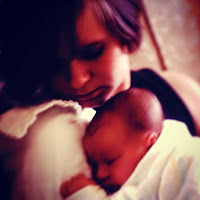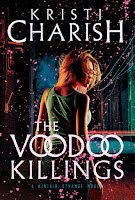Is it still a pop culture reference if I’m referencing one of my own books? I mean is it really a “reference” when J.K. Rowling talks about Harry Potter? Or is it just self promotion…?
Anyway, this week I wanted to blab about an issue that cropped up in a book I just read. I mean, it’s a fairly common problem, truth be told, and it’s easy to see why it happens. But it’s one of those things that almost always makes readers grind their teeth. Even if they’re not sure why they’re grinding their teeth.
 And to explain this, I’d like to start by talking about my mom.
And to explain this, I’d like to start by talking about my mom.
My mom had me when she was really young. Not scandalously, Gilmore Girls young, but young enough that there was still a touch of scandal. Especially back in New England during Nixon’s presidency. It’s struck me a couple times in my life to think where she was in her life at the same age.
Of course, I didn’t always think like this. I didn’t really put the math together until some time late in high school, I think. Because my mom didn’t look young. She looked… well, mom-aged. Why would I look deeper into something that was totally normal? My thoughts just never turned that way.
No, the odd thing when I was growing up was how all of my friends had old parents. I think I was around seven or eight when it first struck me that the friends I’d ended up with all had parents that were at least a decade older than my mom. It was odd, yeah, but I logically assumed that all those many, many parents I hadn’t met were normal mom-age.
Hopefully the point I’m trying to make is clear. All of us assume our lives are normal. That we’re the baseline. Even when we come to realize they might not be normal in a greater societal sense, they’re still normal for us. It still doesn’t surprise me that my mom’s not-quite twenty years older than me because… well, she always has been.
 And this is true for fictional people, too. The world they live in is—big shocker—the world they live in. It doesn’t surprise them. Kincaid Strange isn’t shocked spirits and voodoo are real because that’s her world. Since Charles grew up in a world of metal spiders, a horned God on television, and mechanical implants in the back of people’s skulls, these things are more annoying background noise to him than disturbing. Constance Verity doesn’t get surprised by aliens or androids or monstrous creatures at the center of the Earth because for her… well, that’s a Thursday.
And this is true for fictional people, too. The world they live in is—big shocker—the world they live in. It doesn’t surprise them. Kincaid Strange isn’t shocked spirits and voodoo are real because that’s her world. Since Charles grew up in a world of metal spiders, a horned God on television, and mechanical implants in the back of people’s skulls, these things are more annoying background noise to him than disturbing. Constance Verity doesn’t get surprised by aliens or androids or monstrous creatures at the center of the Earth because for her… well, that’s a Thursday.
Granted, they can still get surprised when something changes in their world. We tend to call that “plot.” But the day to day aspects of their life shouldn’t come as any big shock. They’ve seen it and experienced it before. It’s normal to them.
One mistake I see a lot in stories and screenplays is when characters in my story go for a hover-drive, go to work at the vat-meat processing plant, or telepathically scan perps for evidence of crimes… and are in awe of these things. Maybe even feel the need to dwell on these things for a paragraph or three. It knocks a reader out of the story because it’s immediately apparent this is something the characters should be familiar with.
But it’s not just genre stuff. This happens in “real world” stories, too. I’ve seen characters be eyes-wide amazed at the smell of dog food and the price of milk. Not because these things are radically different than expected, mind you. Just because… they’re there.
Let me put it a slightly different way. And I’ll give you another personal example. Or, in this case, you can give yourself the example. No, you don’t need to share or even write it down, don’t worry. Just keep it in your head.
Do you remember the very first time you saw your current (or most recent) significant other naked? Girlfriend, boyfriend, wife, husband, whoever they may be. I’m not asking for a date and time—do you recall how you felt at that moment, at the sight of them exposed to you? What was running through your mind? What your heart was doing in your chest?
Okay, now get yourself under control–there’s a follow-up.
How did you feel the last time you saw them naked? Maybe this morning or just the other night. Were you as focused? As breathless? Heck, were you even thinking about them? Not in a “someone else” way, I just mean maybe you were working out a problem from one of your own stories. Or thinking about stuff you had to do this weekend. Heck, maybe you were reading and they were just walking around in the background. You knew they were there but you just had to finish this chapter.
Y’see, Timmy, sometimes, storytellers get focused on the fact that this is the first time my readers have seen Wakko perform an exorcism. Or it’s the first time we’ve seen a dynochromium field in use. Or it’s the first time we’ve seen Phoebe and Yakko together (in any sense). And so the writer want to explain these things—to show how horrible or amazing or beautiful they are.
 But just because this is new for the reader doesn’t mean it’s new for the character. It’s not their first time. These are normal things for them. Mundane. Perhaps even a little boring. Definitely not cause for heart-pounding excitement.
But just because this is new for the reader doesn’t mean it’s new for the character. It’s not their first time. These are normal things for them. Mundane. Perhaps even a little boring. Definitely not cause for heart-pounding excitement.
When I start shaping dialogue and reactions to be informative for the audience rather than to make sense for the other characters, my focus is going in the wrong direction. It might seem right on a quick-pass, mechanical level, but when we really study these examples… they just don’t work. You may recall all the times I’ve brought up that most hated of dialogue phrases– “as you know.” It’s a perfect example of writing my dialogue for the reader and not for the characters.
Now, there’s an addendum to this, and it’s a real killer. It’s when I make plot points out of these things people should’ve known about before. If my characters all know Wakko can actually use dowsing to find water, they shouldn’t be completely baffled why he’s digging a deep hole out in the field. At the very least, they should have some suspicions about why he’s doing it.
Because if they don’t—or they don’t even consider his dowsing abilities—well, they’re going to look like idiots in the end.
An easy way to get around this is something I’ve mentioned a few times before. I call it the Ignorant Stranger. It’s pretty much the opposite of “as you know.” In some cases it can help a lot to have a character in my story who’s not quite as in the know. Someone who things need to be explained to, because this is the first time they’re being exposed to something. They can even be my protagonist. In fact, it’s not a bad thing if they are. If my hero needs things explained to them, it means they’re in new, unknown territory. And—as mentioned above-that’s where I tend to find a plot.
One of the worst things I can do as a writer is confuse the first time my readers see something with the first time my characters do. It’ll ultimately come across as false and it’s one of those clumsy mistakes that’s hard to recover from. I need to find the balance point, the sweet spot where I’m informing my readers but things still make sense and feel natural for my characters.
Next time… okay, I’m trying to get a draft done before the end of the month, so next time might just be a few quick questions for you to think about.
Oh, and if you’re going to be at Wonder Con this weekend, I’m there all day Sunday. At 11:00 I’m doing a two hour version of the Writers Coffeehouse, at 2:00 I’m on a panel called “Knowledge: Handle With Care,” and we’re doing a book signing right after that.
Until then… go write










